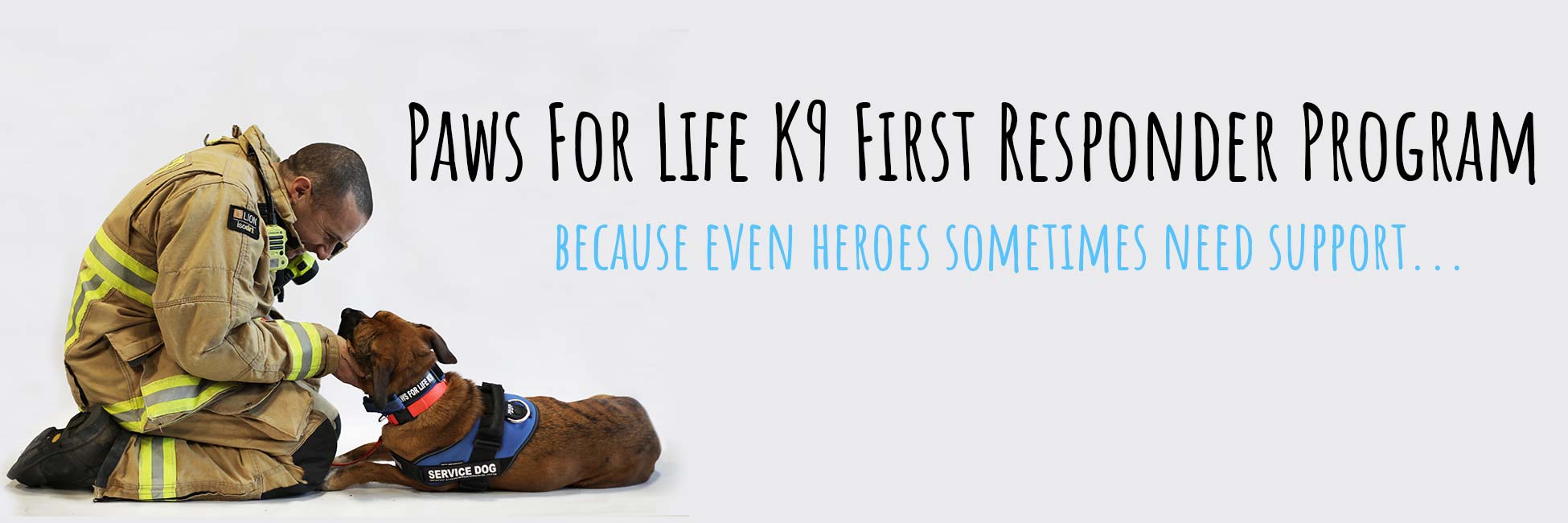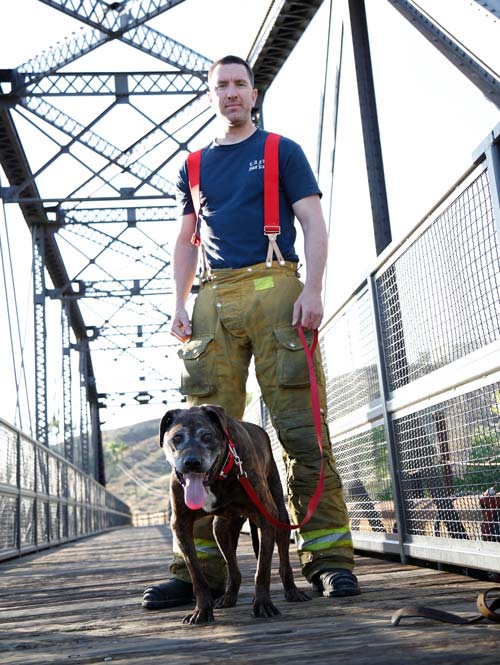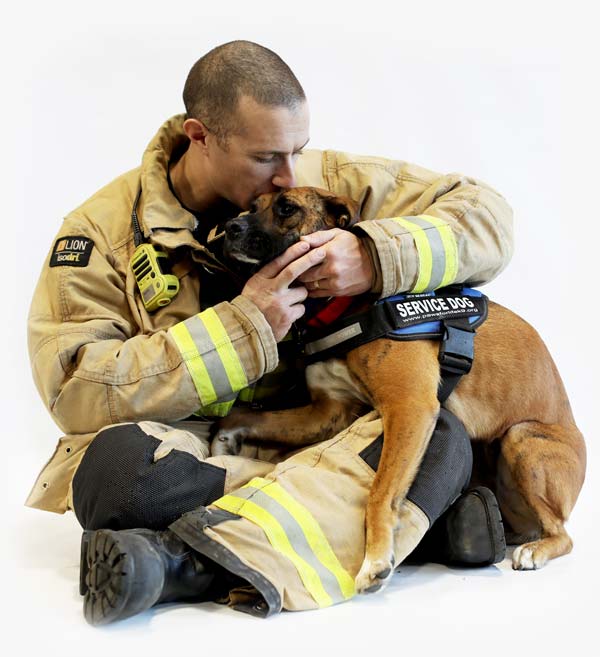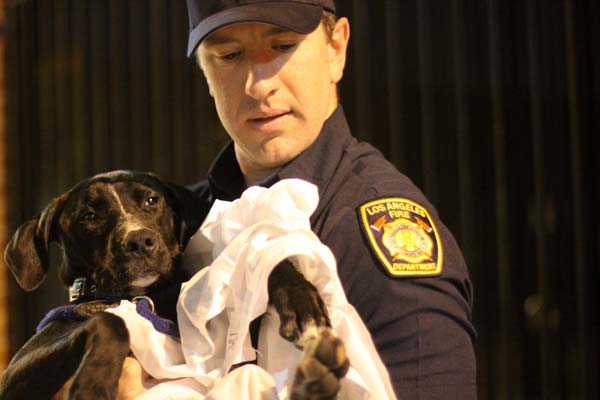
Paws For Life K9 Rescue First Responder Program
Every day, first responders face traumatic events. To help them cope with these constant stressors, Paws For Life K9 Rescue trains Emotional Support Therapy Dogs as another one of our Prison Training Programs. These emotional support dogs, trained with 25 commands, can be safely taken to the scene of accidents or traumatic event to provide comfort, care, and support. For first responders, who often live and work together for days, these therapy dogs are a welcome relief back at the station, offering comfort after long, exhausting shifts.


How Therapy Dogs Help?
Paws For Life K9 Rescue's prison program trains the dogs to assist people enduring extreme stress, and provide relief from anxiety or distress. UCLA Health research on Animal Assisted Therapy (https://www.uclahealth.org/programs/pac/about-us/animal-assisted-therapy-research) substantiated that therapy dogs provide tremendous benefits for both mental health and physical health. The study found that therapy dogs have the following benefits:
- Promotes the release of serotonin that can play a part in elevating moods.
- Lowers anxiety and helps people relax.
- Provides comfort, reduces loneliness.
- Increases mental stimulation and much more.
Many places have therapy dogs that come in and provide relief and love to people from all walks of life. Airports, hospitals, schools, and nursing homes are just a few. Paws For Life K9 Rescue has added firehouses to that list. We are offering firehouses a sense of normalcy at the end of the day.
How it works?
It starts with Paws For Life rescuing dogs from high intake shelters. The dog is then placed in our prison training program to work with our incarcerated trainers and professionals. Select dogs with an aptitude for learning, and an innate ability to provide affection and comfort get selected for the Therapy Dog Program. These dogs can come in all sizes, ages, and breeds. About half-way through the 20-week program the therapy dog is matched with a first-responder, and they start their training out in the field, and taking the dog home with them at the end of the day. The first-responders also attend several in-prison training sessions to work with the incarcerated team that trained the dog. Our outside professional trainers provide around-the-clock training services, advice, and videos to ensure the training process is successful and that the first-responders feel supported.

